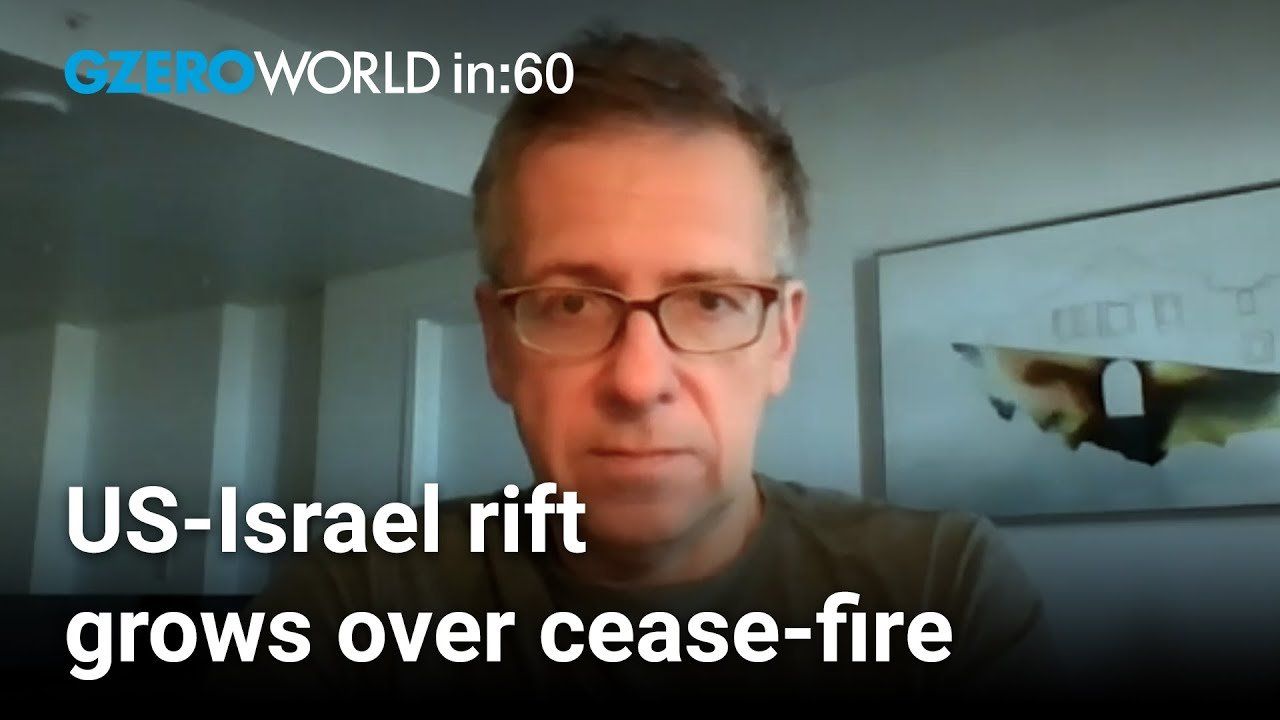Ian Bremmer shares his insights on global politics this week on World In :60.
How will the US-Israel relationship be affected by the US backing a Gaza cease-fire resolution at the UN?
Well, it was high drama yesterday when Prime Minister Netanyahu said he was going to immediately suspend an Israeli delegation that was going to visit the United States on the back of that decision.Very unhappy that the Americans decided to allow it to go ahead and abstain as opposed to by themselves vetoing. And keep in mind that all every other permanent and nonpermanent member of the Security Council has voted in favor. A lot of US allies there. And you know, that would seem to be a big deal, except Yoav Gallant, Minister of Defense, still stayed in the United States and had a series of very productive and high level meetings with his counterparts in the US. And there are still negotiations proceeding that are constructive between the US and Israel and Qatar to engage with Hamas and try to get a temporary cease-fire done and a bunch of hostages released also called for immediate release by the UN Security Council resolution. So I think there's a lot more drama here than there is actual impact on the US-Israel relationship. And certainly a lot of pressure that continues to mount on a very unpopular Israeli Prime Minister Netanyahu at home.
Will there be international consequences from the Francis Scott Key bridge collapse in Baltimore?
I mean, it wasn't terrorism. It was an accident, though. I mean, I guess if this was Russia, they'd say the Ukrainians were responsible for it. It is a major port on the Eastern seaboard that looks like it is going to be a real problem to get in and out of. And that means supply chain challenges, especially in terms of cars, millions of which go through Baltimore every year. But, you know, the United States has an economy that's doing quite well. A growth is significant, but not over whelming. And otherwise supply chain is working around the United States for imports. So I suspect that if there's an economic cost here, it's going to be relatively small and short lived.
What message is Russia sending by their public display of torture against accused terrorists?
Well, they're showing that they have a complete indifference to the well-being of any human being. They're also, of course, displaying that the Russian state will go after you with its full force if you are seen to be an enemy of theirs. That is true in terms of the way they treat opposition journalists and politicians. But it's also true in the way they treat suspected terrorists. And they, of course, have forced confessions. I suspect they do have strong evidence, given what we've seen of that over the last few days. But still, I mean, in a system of rule of law, you are innocent until proven guilty in Russia. Of course you are guilty when the government says you are guilty, in particular, when the absolute leader says you're guilty and then you no longer have rights and the state can do with you as they will. We saw that with Mr. Prigozhin, We saw that with Mr. Navalny. And now we're seeing that with four suspected and likely but not yet proven terrorists.
More For You
Most Popular
Walmart’s $350 billion commitment to American manufacturing means two-thirds of the products we buy come straight from our backyard to yours. From New Jersey hot sauce to grills made in Tennessee, Walmart is stocking the shelves with products rooted in local communities. The impact? Over 750,000 American jobs - putting more people to work and keeping communities strong. Learn more here.
